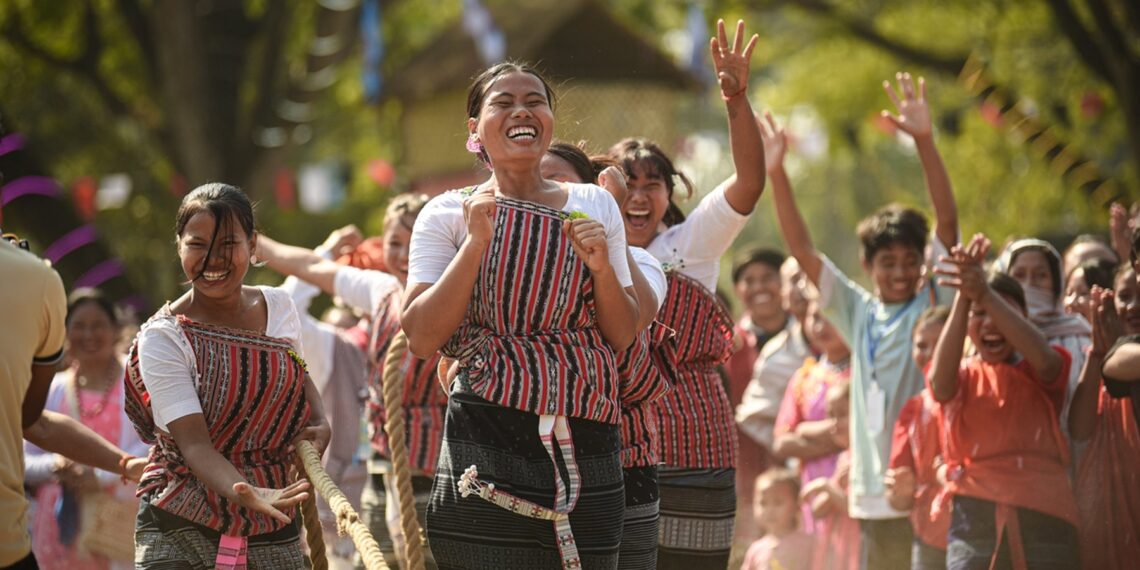GUWAHATI: President Droupadi Murmu will attend the ongoing Karbi Youth Festival in Diphu, Assam, on January 17.
The President, who is currently on a three-day tour of Assam and Meghalaya, will be gracing the Golden Jubilee edition of one of Northeast’s oldest community-based festival as the chief guest.
Also expected at the event are Governors of Assam, Meghalaya and Nagaland, along with the Chief Ministers of the mentioned states.
The eight-day festival underway at Taralangso, a 672-acre cultural complex on the outskirts of Diphu, began on January 12 with a focus on promoting the culture of the Karbi community.
This year, the festival has held focus on traditional games of the community, particularly the “Hambi Kepathu”.
Chandra Sing Kro, the president of the Karbi Cultural Society, expressed the importance of preserving the traditional games that are slowly fading from the cultural landscape.
“We have been trying to promote all the traditional games that are surviving, but we have recognized Hambi Kepathu as our national game because it is linked with the birth of the Karbi community,” Kro told a news agency.
He lamented the diminishing awareness and participation in the traditional games among the younger generation, stressing on the need for a change in this trend.
“Only a few of these traditional games are remembered, and too little is known about them today,” Kro remarked.
Hambi Kepathu, a historically male-centric game, has its roots associated with Ham Tungjang, a legendary Karbi girl.
Some traditional Karbi games are gender-specific, such as Sekserek and Hon Kejeng, while others, such as Sansuri Kachivung and Keron, are inclusive.
Karbi community boasts a plethora of traditional games, including Theng Angtong Pen Kekat (racing while carrying a bamboo basket), Sekserek (stick game), Keron (calculation game), Sansuri Kachivung (tug-of-war), Kengdongdang (racing on bamboo stilts), and Hon Kejeng (spinning).
Apart from that, the festival is set to present a vibrant display of the Karbi culture with progarmmes including folk songs, traditional dances, ethnic attire, and cultural customs.
Furthermore, the festival has attracted global attention, extending invitations to embassies from five countries, cultural enthusiasts, and experts from both India and beyond.















